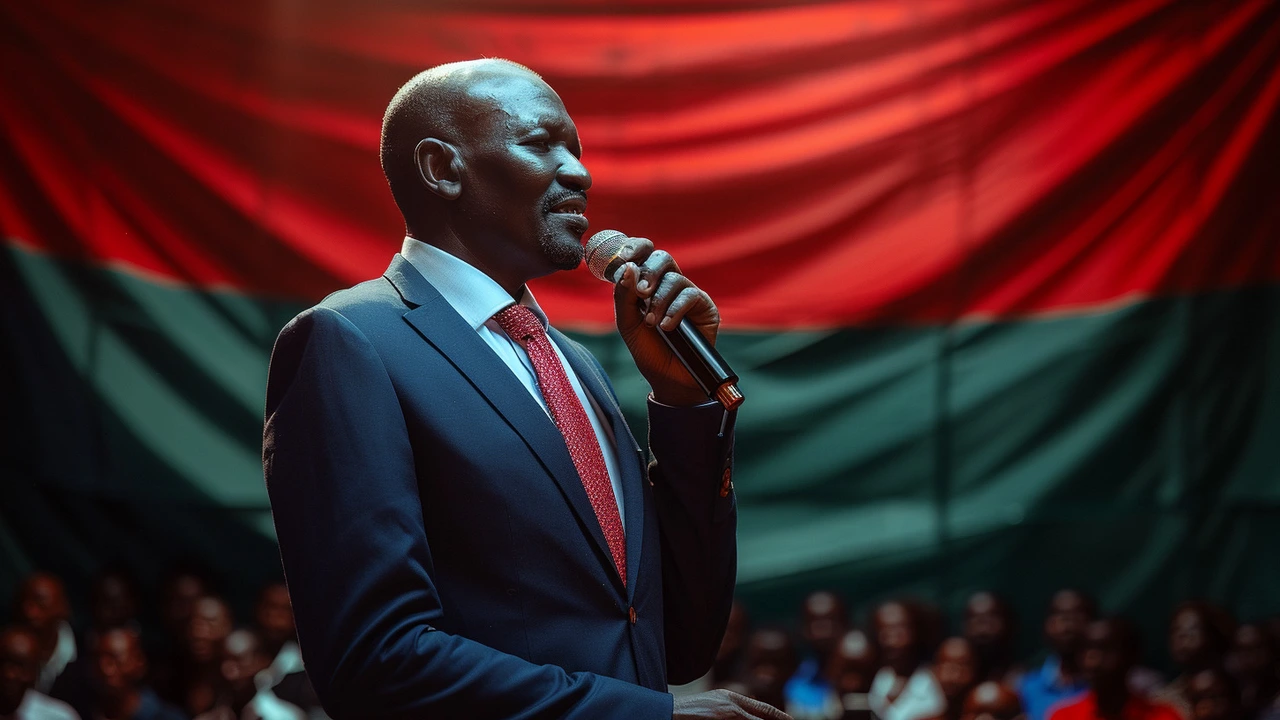President William Ruto Cancels Appearance at Peace Conference Amid Nairobi's Anti-Tax Protests

President William Ruto Cancels Appearance at Peace Conference Amid Nairobi's Anti-Tax Protests
In a significant turn of events, President William Ruto has decided to cancel his planned appearance at the opening ceremony of the Global Peace Leadership Conference. Held at the Radisson Blu Hotel in Upper Hill, Nairobi, the conference aims to foster peace, development, and cooperation among nations, with delegates from across Africa and around the globe in attendance. However, the escalating anti-tax protests in Nairobi and across Kenya have cast a shadow over the proceedings, leading to heightened security concerns.
Unrest and Casualties in Nairobi
The decision to pull out of the conference came after a particularly violent outbreak of protests on June 25, 2024, where confrontations between demonstrators and police resulted in numerous casualties. The protests, spurred by a recent tax hike, saw thousands of Kenyans take to the streets, voicing their outrage and calling for the government to reconsider its fiscal policies. Tragically, the unrest led to several deaths and injuries near the Parliament building, highlighting the gravity of the situation.
President Ruto, who was slated to deliver a keynote address to kick off the conference, had to reconsider his participation in light of these developments. Sources close to the President indicated that the safety of all attendees, including high-profile guests, was a paramount concern. The threat to storm the venue by a segment of the protestors only complicated matters further.
High-Profile Personalities in Attendance
Despite the President’s absence, the conference continues with a lineup of notable figures set to speak. First Lady Rachel Ruto, ODM leader Raila Odinga, Former Chief Justice Willy Mutunga, Education Cabinet Secretary Ezekiel Machogu, and Prof PLO Lumumba are among those expected to share their insights on peace, governance, and development. These speakers bring a wealth of experience and different perspectives to the table, ensuring that the dialogue remains robust and informative even in the President's absence.
Protestors Demand Change
The anti-tax protests that disrupted President Ruto's plans are rooted in broader discontent with the government’s economic policies. Demonstrators argue that the recent tax hikes are unfair and disproportionately burden the already struggling populace. Lawyer Miguna Miguna, a vocal critic of the administration, was among those who rallied protestors to make their voices heard at the Radisson Blu Hotel, sharing posters on social media encouraging a substantial turnout. His calls for action resonated with many, leading to the heightened tensions observed during the conference dates.
Participants’ Safety and Precautions
The administration's decision to prioritize safety speaks volumes about the intensity of the current social climate in Kenya. Organizers have had to ramp up security measures to ensure that the conference can proceed without any disruptive incidents. Anti-riot police have been deployed around key venues, and additional precautions have been taken to safeguard the participants. The Radisson Blu Hotel, the main venue for the event, has turned into a heavily fortified zone, with strict access control in place to prevent any unauthorized entries.
Looking Ahead: Nyanza International Investment Conference
With the Global Peace Leadership Conference pressing on despite the setbacks, all eyes are now on the upcoming Nyanza International Investment Conference, where President Ruto is expected to be the chief guest. Scheduled for June 28 to June 29, this event will bring together investors and stakeholders from various sectors to explore opportunities within the Nyanza region. However, given the current atmosphere of unrest, it remains uncertain whether the President will attend. The administration is closely monitoring the situation, and his appearance will likely depend on how events unfold over the next few days.
The Bigger Picture
The protests in Kenya are emblematic of a broader wave of dissatisfaction sweeping across many parts of Africa. Citizens in various countries are increasingly voicing their frustrations over economic hardships, governance issues, and perceived inequalities. Governments are being challenged to address these concerns transparently and effectively to avoid further unrest. In Kenya's case, the current administration's approach to the tax issue will be scrutinized in the coming months, and its ability to strike a balance between fiscal policy and public satisfaction will be crucial.
A Conference Driven by the Hope for Peace
Despite the turbulent backdrop, the Global Peace Leadership Conference aims to fulfill its mission of promoting peace and cooperation. The discussions and resolutions forged during this conference could play a vital role in guiding Kenya through these challenging times. The participants' shared commitment to dialogue and understanding underscores the potential for positive change, even amidst adversity.
As the conference unfolds, the absence of President Ruto will undoubtedly be felt, but the presence of other influential leaders provides a platform for meaningful discourse. It's a reminder that peace-building is a collective effort, requiring contributions from all quarters to foster a more harmonious and prosperous society.
Kenya stands at a crossroads, and the coming days and weeks will reveal much about the nation's direction. With the world watching, the Global Peace Leadership Conference serves as a beacon of hope, encouraging all stakeholders to work toward a more peaceful and just future.